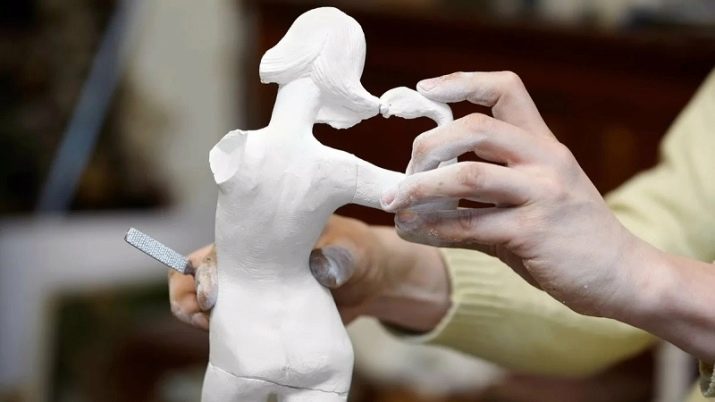Self-development: definition, basics and ways

The importance of self-development is often spoken of. People are encouraged to develop constantly, but no one points out the directions - where and how to develop, few imagine. At the same time, everyone has a need for development. In this article we will look at what self-development is, what it consists of and how to put it into practice.
What is it in psychology?
Self-development means a certain work on oneself, efforts and actions of a person aimed at improving oneself in various spheres of life. Until a certain age, our parents are engaged in our development, then - teachers, universities. But now the diploma has been received, should the development stop there? Of course not. Any stagnation sooner or later leads to degradation. Therefore, the need for self-development is obvious.
This is a person's inner need, and even those who rarely think about the essence of the concept as such have it.

Self-development allows a person to maintain self-respect, the proper level of self-esteem... He works on himself in order to acquire the necessary personality traits, skills, characteristics that will become the basis of his existence, help him achieve the desired goals. If at school and university everything is quite simple with the definitions of tasks, they are set before us by mentors, then in terms of self-development it is more and more difficult. Nobody will give assignments, explain a new topic, take an exam and send them to retake. All this will have to be done on your own.
You can, of course, find schools of self-development, turn to coaches, or at least join a sect, but practice shows that often they all have quite definite goals - getting benefits, and they are completely uninterested in your development as a person. And therefore to engage in self-development, as follows from the definition of the concept, will have to be done solely on their own, sometimes by trial and error. To reduce mistakes, it is worth listening to basic recommendations, on the basis of which you can work out your own development plan and successfully follow it.
There is good news too - human nature itself will be on your side, providing for the need to develop for each species. If a person stops in development, life itself tries to push him out of his comfort zone so that the process of evolution and learning continues.

Why do you need it?
Striving for self-development - the need of everyone, and to one degree or another, everyone, without exception, experiences it. Developing personally, striving to change ourselves for the better, we increase the level of our motivation, learn new things and open up prospects for ourselves. This is extremely important for self-realization, gaining the meaning of existence. The importance of self-development is undeniable at any age. If a person does not stand still, he gets the opportunity not only to use basic motives, but also to create his own life with his own hands, to make it interesting and rich, complete and harmonious.
Choosing the path of self-development, a person sees positive changes in himself, the world around him, because everything starts with himself and his views, beliefs, judgments, optimism. Those who have identified self-development as an important area of their lives are usually more successful at work, happier in family and relationships. They begin to achieve goals faster, their health improves. Why, with all the visible advantages of self-development, do many try to avoid it? There can be quite a few reasons for this.
- Fear of changing something in your usual life, fear of the future.
- Understanding that development will require some effort, reluctance and laziness.
- Fear of being judged by relatives and friends and the risk of falling into the category of "eccentrics" who are always missing something.
Belief that the best is the enemy of the good usually stops a person., and not allowing him to move from reasoning about the benefits of personality self-development to real actions. What if the improvements have unexpected effects? What if it gets worse than it is now? Gradually, such an approach can lead to the reduction of life to banal physiological needs - to eat, sleep, reproduce, defend if attacked, or stay in a well-fed sleepy slumber if there are no enemies on the horizon. This is a natural way of life for an animal, but not for a person.

Self-development directions
If the decision to take the path of self-development is made, it should be clearly understood what are its components and strategic directions, types. This will help you not to wander in the sea of information, but to immediately build clear and intelligible goals, identify those areas in which you have to work further.
Spiritual
No one will tell you what to believe, what God to worship, what commandments to accept as truth. If someone tries to do this, it will be more of a manipulation. Only you yourself can understand what kind of spiritual content you need. But the spiritual direction is the most important, and it is recommended to put it in the first place.
Even hardened atheists rely on some of their own values, ideas about what is permissible, moral, and this can also be considered spirituality.

Physical
In whatever form a person is, he it is important to take care of your health. If you lose it, then other areas of life will automatically lose their significance. That is why it is important to watch your body, visit a doctor on time, not engage in experiments in the field of traditional medicine and self-medication.Age-appropriate exercise should be part of your every day. It is not necessary to go in for sports professionally, a simple but daily exercise will be enough.
Mental
The way you watch your body is so you need to monitor your psyche, supporting it. This direction of self-development implies mastering the techniques of relaxation and dealing with stress, regular self-control and introspection, mastering the methods of training memory and mindfulness, concentration and thinking. By forcing the brain to work, you can correct mental processes, avoid nervous breakdowns. You will learn to hear your own feelings and thoughts, to know your desires.
Social
This direction implies the realization of oneself as a social unit - as a husband or wife, mother, father, grandmother. Learning to interact in society, understanding the connections that exist in the philosophy of relationships, we begin to rethink the role of people in our own life, increase their value, and better understand our own value. The social role does not always correspond to the education and profession received. That is why people of different professions go to volunteer or do socially useful things at their leisure, for example, clean river banks or repair public playgrounds on their own.
Through these actions, a person realizes himself as a member of society, while remaining a bright individuality.

Intellectual
Intelligence does not develop by itself, which has long been proven by biologists and physiologists. If you do not teach a child to read and count, he will not be able to comprehend more complex sciences. And so an adult needs to constantly keep his mental and intellectual spheres in perfect order, giving himself food for thought.
Unfortunately, many people see rest after a hard day as watching talk shows on TV. Such spectacles do not force us to think, to do mental work. A person on the path of self-development refuses any activities devoid of semantic load. He uses any minute with benefit - he will read books, solve logic puzzles or puzzles, preferring to increase his intellectual potential even at his leisure.
Creative
Any person is a creator in something, it is not necessary to be a representative of a creative profession in order to self-actualize in creativity. On the path of self-development, a person learns to creatively approach the solution of his everyday tasks, to introduce elements of an artistic approach even into routine actions. There are no people who have no talent at all. There are people who have not yet revealed them.
The creative direction does not provide for the indispensable development of drawing or modeling, playing music, it only helps to find your own talent, open it and give it the opportunity to develop.

Professional
Self-development in the profession is a constant improvement of professional knowledge and skills. The desire to be aware of everything new that is happening in the field of activity distinguishes the artisan from the master. The master does not have enough of his baggage of experience, he is always open to receiving and transferring experience, he is keenly interested in everything that is important for his work. With professional self-development, a person is not burdened with the need to go to work again. She gives him pleasure.
Self-improvement methods
There are many ways of self-development. The main ones are obvious - education, training, as well as the desire to read and comprehend new, previously unknown... Self-education in modern conditions does not face obstacles in the form of a lack of information. There is a lot of it, and this should be used.
But before you choose a technique or methods, you need to find approaches to yourself. Therefore, for a start, you can study information that is useful for self-knowledge and awareness of your true goals, needs and desires. The principles of self-development involve complex efforts and actions aimed at:
- increasing your own self-esteem, confidence;
- developing one's own strengths and positive qualities;
- correction of their own shortcomings that complicate life or interfere with living the way we would like;
- improving health status;
- raising social status;
- development of their emotional and mental potentials;
- time management.
The main principle of successful self-development is to optimally combine theory and research with their application in practice. Without implementation in life, any knowledge loses its meaning.

Where to begin?
First step - self-knowledge... It will help determine what aspirations are, what are your priorities, at what stage of development you are at the moment. Make a list of your strengths and weaknesses, determine what inner beliefs are holding you back from achieving your goals. Based on this, an individual plan is formed, in which you will determine what you will do first and what - later. Psychological tests can also help with self-diagnosis.
Whenever you have an idea that engenders a willingness to act, stop for a second and ask yourself the main question - "Why?" Why do you want this? Why do you find it difficult? Why is there a need for this right now? Gradually extend this useful question to your decisions and actions, to your habits, because it is very useful to find out why coffee is more pleasant to you than tea, and your favorite color is blue, not yellow.
The second stage is the definition of methods and techniques... You can use one, you can practice several at once. Gradually, you will come to understand that what is proposed is more or less effective for you. Start observing yourself - this is very helpful. Non-judgmental observation will show real change. Record your thoughts, emerging emotions, ideas and beliefs, bodily sensations and sudden needs. Usually a couple of weeks of such close observation of yourself is enough to understand exactly how this or that technique or exercise affects you.

Sample lesson plan
Everyone can compose a personal program by himself... But if it's difficult to start with, let's try to define tasks together.
Week of truth
The first seven days will be the hardest. Your task is to be as truthful as possible in yourself, not to justify anything, not to seek explanations for your actions. Just write down all your observations every day and ask yourself why often. This week can show the most unexpected results. For example, you may realize that you are incredibly touchy, that you incredibly need new acquaintances and expanding your circle of friends, that you do not want to do what you have been doing all this time, but want to change jobs, that the decision to play tennis was not at all your own, but a decision. friends, and you just agreed with him that you do not love your husband, but only support the marriage out of habit.
Revelations can be shocking, but they must be experienced and taken into account. This week will clearly show you what system you need, where you should focus your efforts in the first place, how to adjust your life priorities. From this moment on, you will no longer be able to deceive yourself, because the truth will already be revealed.
Contract with yourself
Once you have a clear intention, make an agreement with yourself, an internal contract called a personal vision. Describe on paper and in as much detail as possible what you want to become, who you see yourself, who is next to you, where you live, what you do, how you feel. You are giving yourself a written commitment that you must not break. The likelihood that everything will be exactly as you described is increased if everything is actually written on paper.

We draw up a plan
Start by setting big goals for every area of your life. Highlight in them milestones and set clear deadlines. For example, in the week of the truth, you realized that your work is boring for you - and does not bring joy, as well as income. The goal is to do an interesting job and get decent money for it. Intermediate goals - studying the vacancy market for a period of 15 days, sending a resume for interesting offers, a plan of meetings and interviews. Don't settle for less, look for exactly what will fully reflect your idea of a good job with a good pay.
For each goal, clearly define what books, courses, manuals you may need. Consider the options for seeking help from friends, maybe there are people among them who have the necessary knowledge and capabilities, it will not be difficult for them to help you become better, more effective, and happier.
Accounting for achievements
Keep a clear record of your accomplishments. Even small achievements should be recorded. This will help track your progress, keep you motivated in difficult moments of doubt and failure.
Take notes daily, weekly and monthly, take stock of what you learned and how you were able to apply.

Sandbox method
Try to absorb new information in this way. The method implies intuitive understanding instead of rote memorization of boring and not always necessary numbers, proportions, facts and dates. A sandbox is an area in which you can safely experiment without the risk of losing everything if the experiment fails.
The sandbox should be free, should not be an area of any risk. For example, you can start a blog and try to learn how to write well and interestingly, try your hand at photography, offering them on social networks. Analyze the feedback, it will help you learn a new skill much faster. Gradually introduce new conditions and knowledge into your sandbox, study information, replenish knowledge and fill your experimental site with new content.
There are separate recommendations for representatives of different sexes.
- For women... Especially watch your emotions and do not put “labels” like “this is good” or “this is bad” on your own feelings at the start of self-knowledge and self-development. This is the most common mistake of the fair sex. The evaluative approach prevents, in the end, from correctly understanding the degree of significance of this or that change.
- For men. A common male mistake at the start is the naive approach. Various systems and techniques are being tried, and for a long time it seems that all this works fine or may work in the near future. But in fact, a person is standing in one place, not moving anywhere. To prevent this, you need to overcome the typical male reluctance to write down their feelings. It is the records that can show that you have lost your way or did not go on it.

Effective exercise
Here are some more helpful exercises to practice on a daily basis.
- Fairy tale... Take five minutes and compose your own fairy tale. It can be told to the child before bedtime or written down if the work is successful. Unleash your imagination, come up with unusual characters, a difficult journey. Each of your fairy tales should end with valuable advice and be sure to convey a part of life experience. This will help you to effectively leverage your creativity, which, as we have already found out, everyone has.
- Mental counting... Everything that needs to be counted, try to count in your head, and not using a calculator. This will help maintain brain tone, which is extremely important for comprehending any self-improvement system you choose.
- Three new words or terms. Every day, learn three new foreign words or difficult terms that you didn't even know existed before.
This trains memory and associative perception, which are necessary in order to quickly assimilate the bulk of the data.

Psychological advice
The advice of specialists to those who embark on the path of self-organization and self-improvement is quite simple, and the main thing is to aim oneself at success, and not at failure. Any barriers on the way are easier to overcome with optimism.
- Do not grab onto everything, bring what you started to the end.
- Develop inner discipline in yourself, do not allow yourself to be lazy and not carry out the planned plan, justifying this by different life circumstances.
- Learn to rest, set aside enough time for this, meditate, relax.
- Do not set overestimated goals, the implementation of which is unrealistic or inaccessible to you according to the currently available opportunities.
- Don't be afraid to fail. It will become an experience and a new step in your development.










